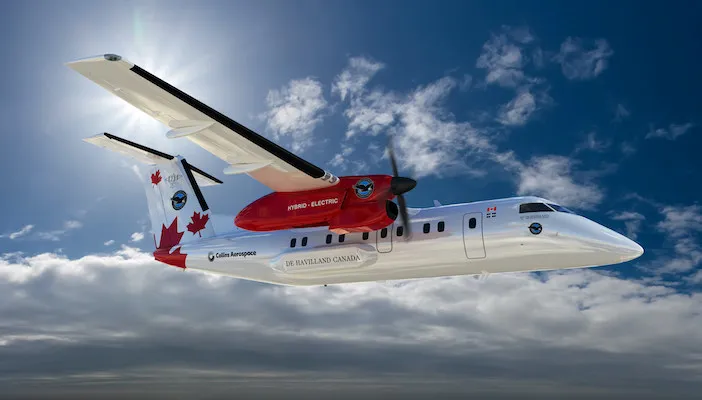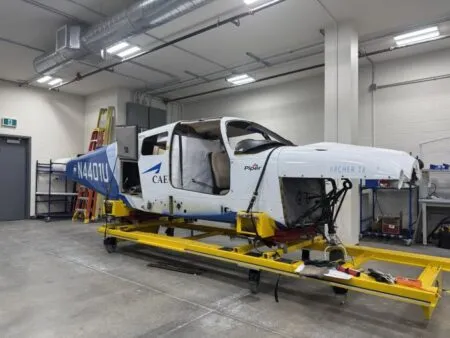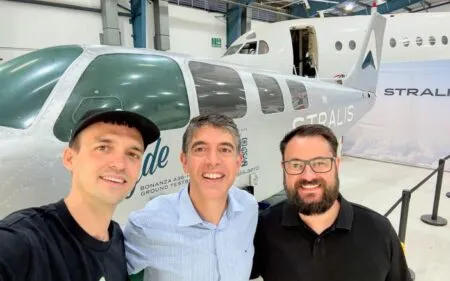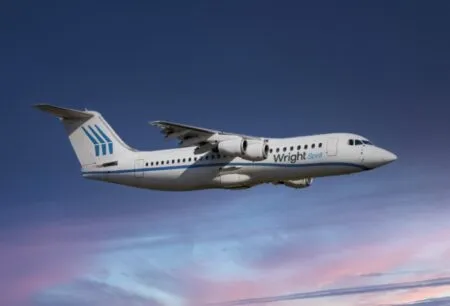The hybrid-electric propulsion system’s first run took place at Pratt & Whitney’s (P&W) innovation facility in Longueuil, Quebec and the engine performed as expected, reported the company. The propulsion system integrates a 1 MW electric motor developed by Collins with a modified P&W fuel-burning engine.
The hybrid-electric system will enable more efficient engine performance during take-off, climb and cruise and is said to reduce fuel burn and carbon dioxide emissions by up to 30% compared to modern regional turboprop aircraft.
Jean Thomassin, executive director of new products and services at P&W Canada said, “Hybrid-electric propulsion technology offers significant potential to optimize efficiency across a range of different aircraft applications, helping our industry meet its ambitious goal for achieving net zero carbon dioxide emissions.
“With our ground test program well underway, planned flight testing will enable us to accelerate the demonstration of this next generation sustainable propulsion technology as we continue to expand our collaboration within Canada’s aerospace ecosystem and beyond.”
The independent Flight Test Centre of Excellence at Cert Center Canada (3C) in Ottawa, Canada will modify and operate the De Havilland Canada Dash 8-100 aircraft.
John Maris, president of 3C and the chief test pilot for the project said, “We are honored that Raytheon has chosen our Design Approval Organization to lead the flight test program for this historic demonstrator project.
“3C has assembled a trusted Quebec team that includes Chrono Aviation, WAAS Aerospace, and Elisen & associés to integrate the hybrid-electric powertrain, battery system, and high voltage electrical harness into 3C’s Dash 8 research aircraft.
“I am confident that 3C’s extensive flight test experience and historical relationship with Transport Canada will complement Raytheon Technologies’ outstanding team to safely demonstrate this important technological advance.”
The CAD$163 million (US$120 million) Green and Digital Aircraft of Tomorrow program was launched in July 2021 with the help of Canadian Government funding. The project is a successor to P&W and Collins’ Project 804.
Last year engineering consultancy Ricardo joined the program to support component design, systems integration and testing while De Havilland Canada is supporting integration of the propulsion system on the experimental aircraft.
The hybrid-propulsion system’s batteries are being supplied by Swiss battery firm H55 with the National Research Council of Canada helping with the battery component designs and associated electrical control systems.
Other hybrid-electric propulsion projects Raytheon is involved in include STEP-Tech and Switch.





